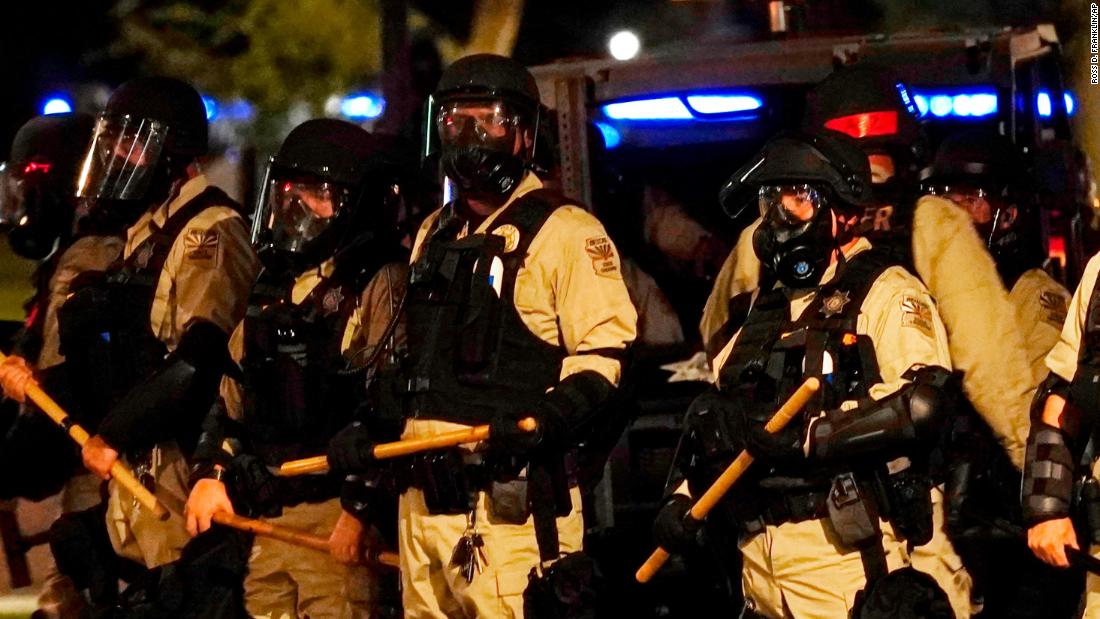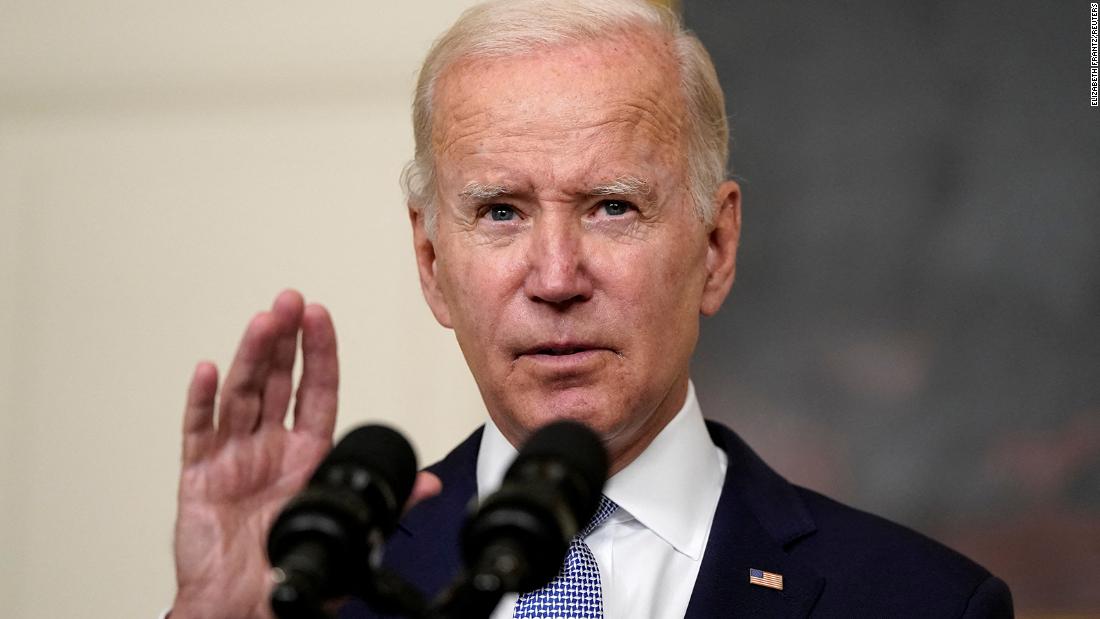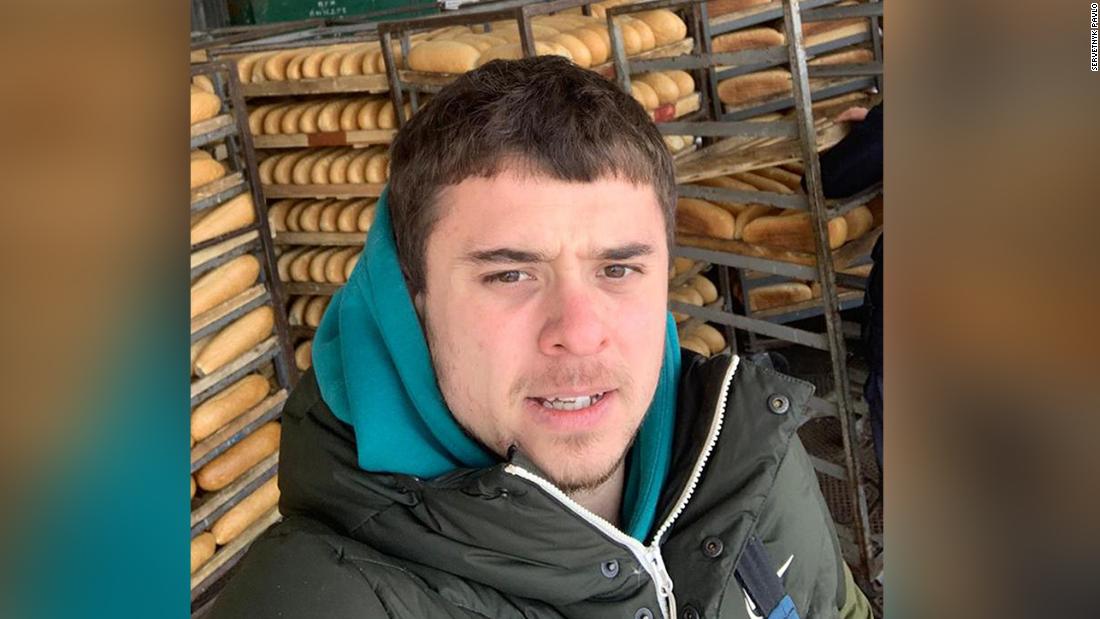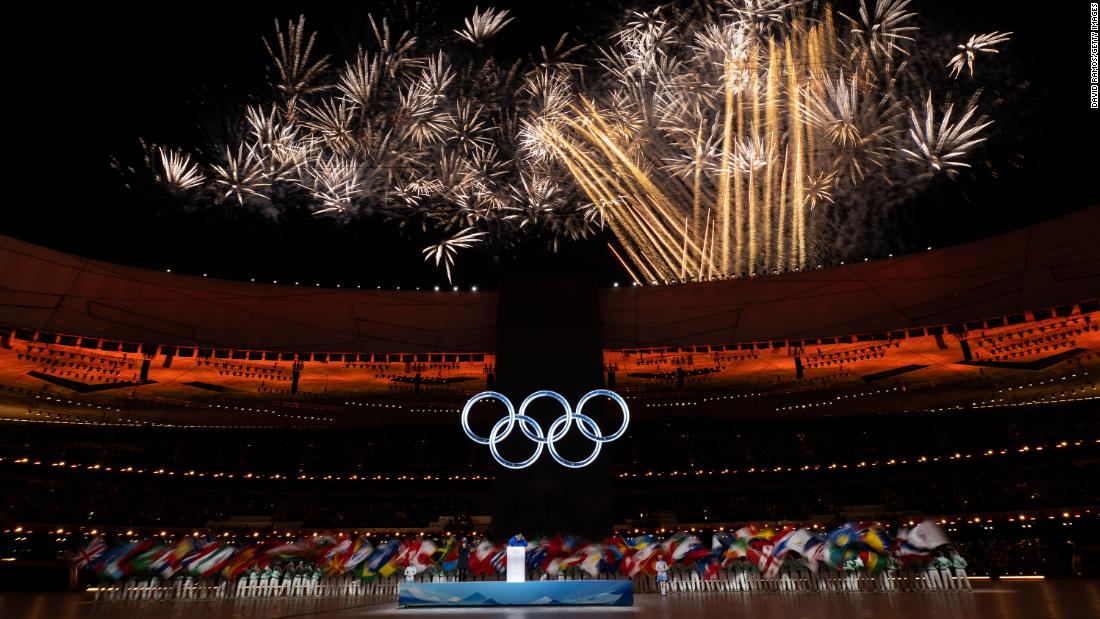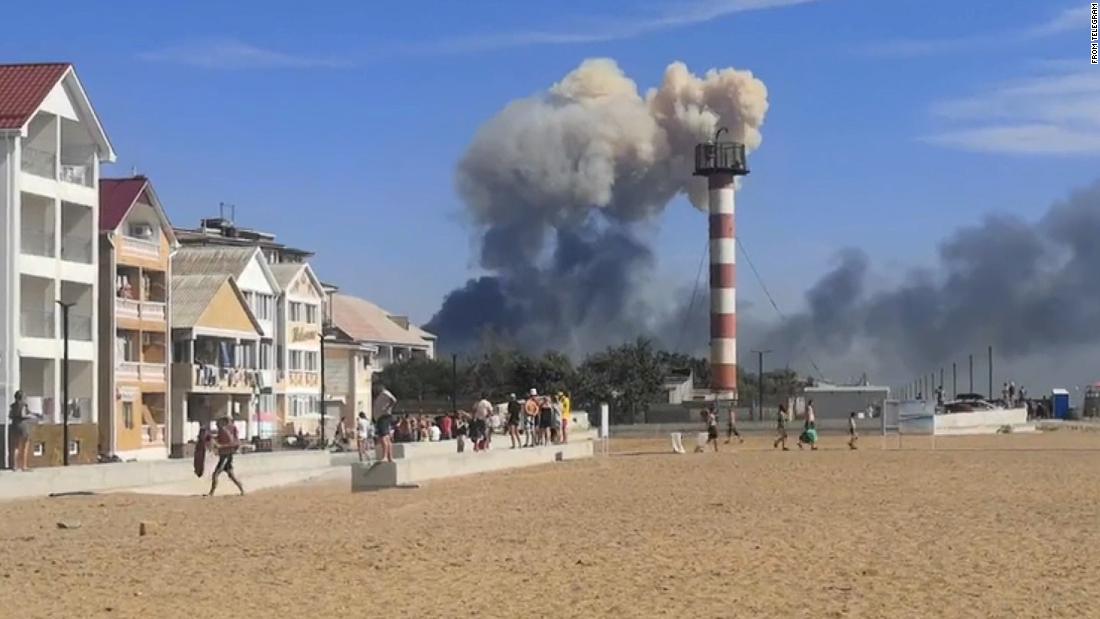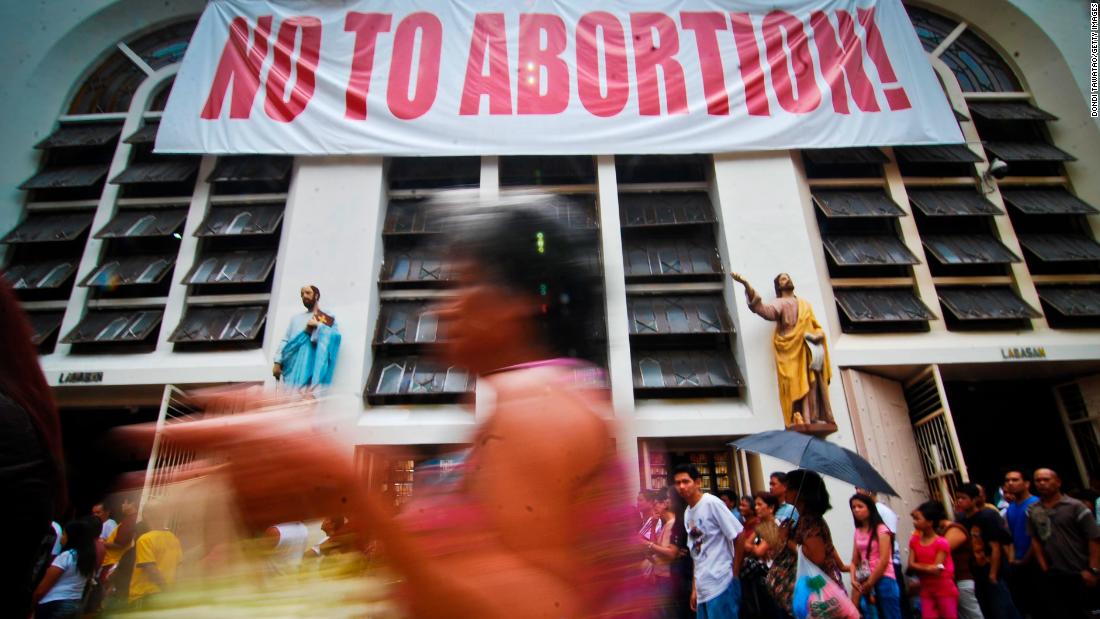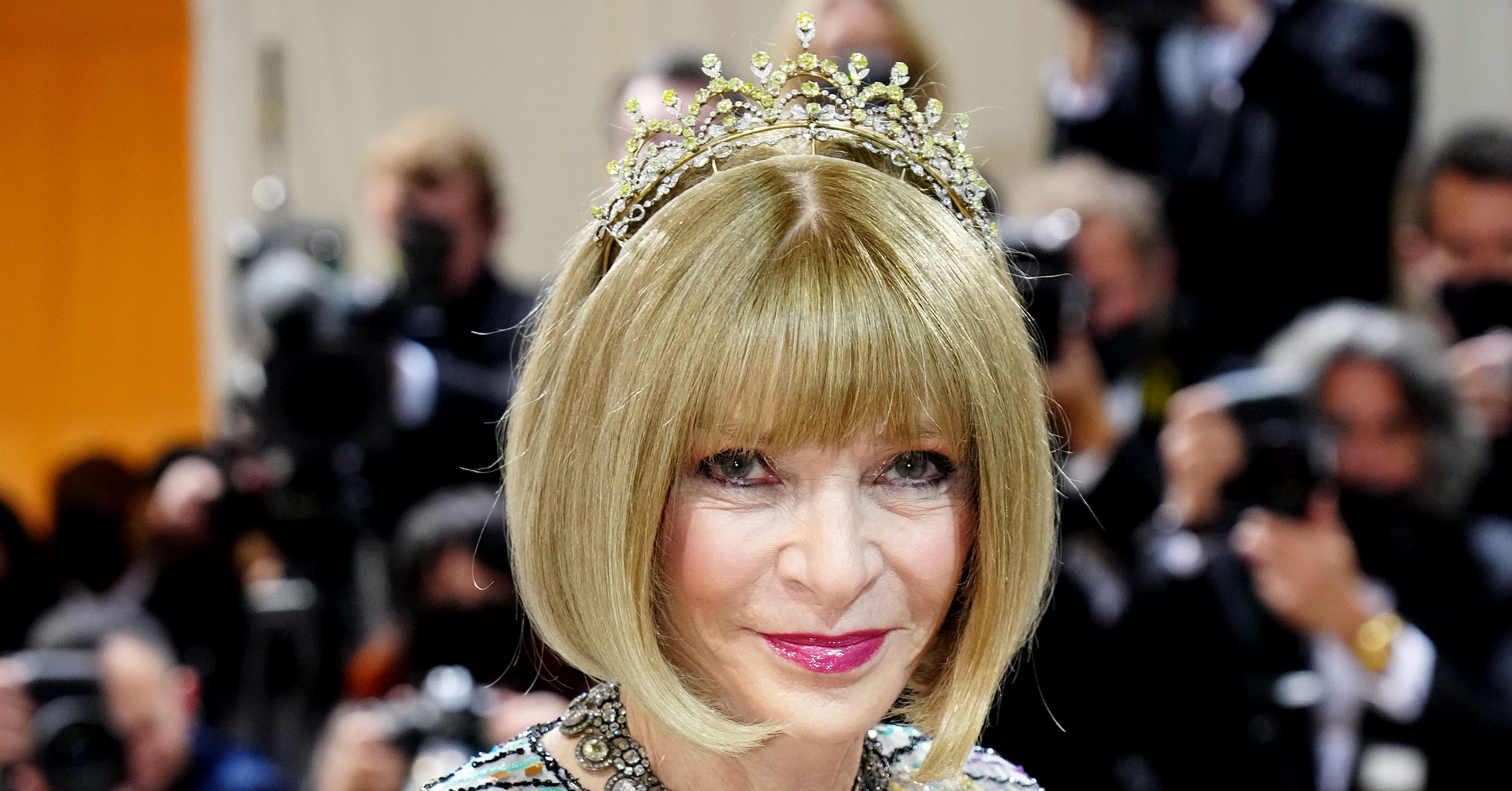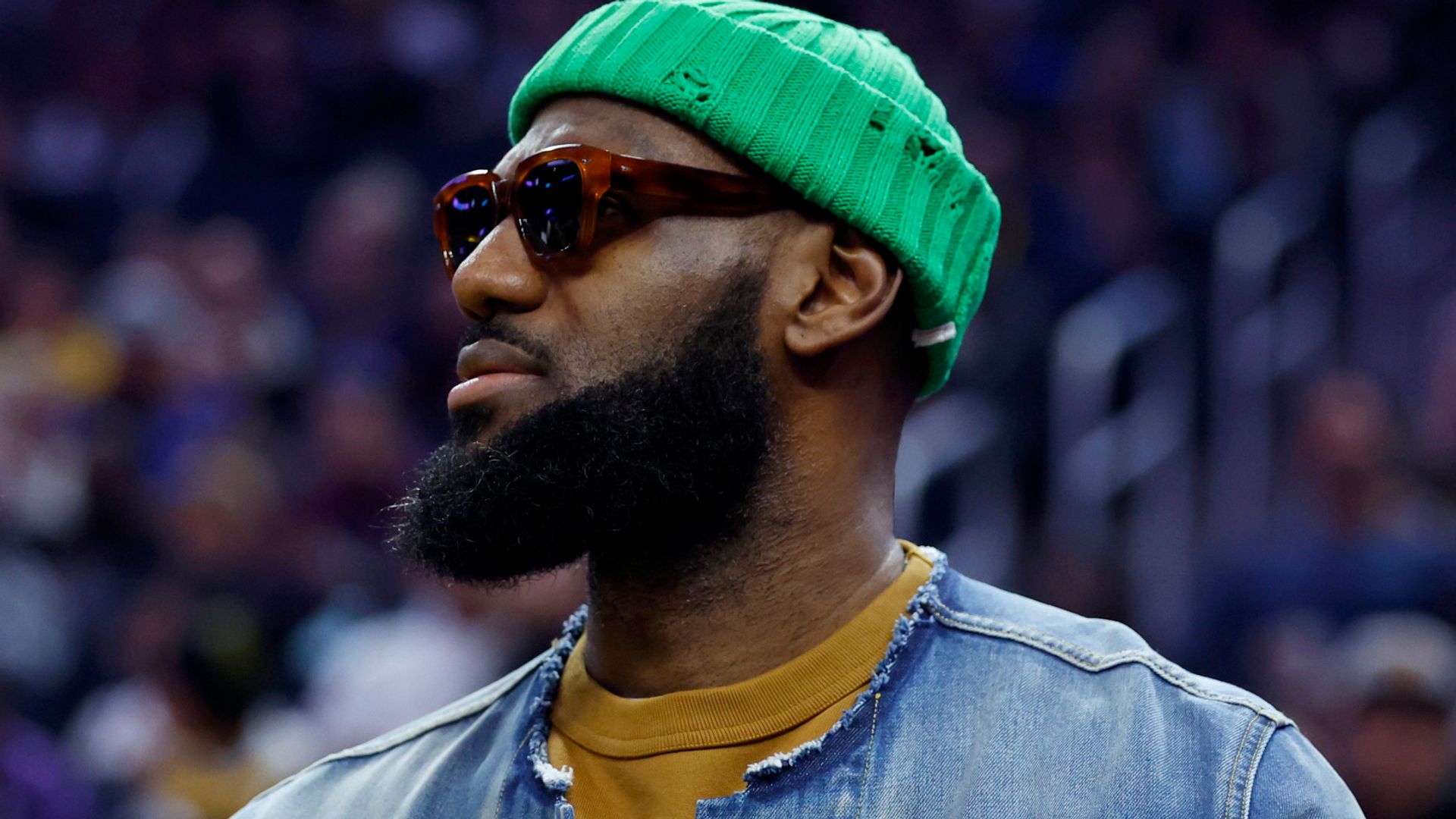Russian missile strike on Kharkiv apartment kills 1, officials say
1 min agoTalks on Zaporizhzhia nuclear plant are "not easy", Russia's deputy foreign minister says From CNN's Josh PenningtonRussia's deputy foreign minister Sergei Ryabkov claims Ukraine is "dragging its feet" on negotiations to create a safety zone around the Zaporizhzhia nuclear power plant. "The negotiation process is not easy. We forwarded our proposals to Rafael Grossi, the director general of the [International Atomic Energy Agency]. To the best of our knowledge, Kyiv has not yet provided a clear answer to the initiative of the IAEA head. By the looks of it, it is simply dragging its feet," Ryabkov said in an interview with Russian state news agency RIA Novosti released Monday. Since last fall, Grossi has reiterated the urgency of creating a safety zone around the plant in southeastern Ukraine, which has been under the control of Russian forces since March last year.Ukraine has repeatedly accused Russian forces of storing heavy weaponry inside the complex and using it as cover to launch attacks, knowing that Kyiv's forces can’t return fire without risking hitting one of the plant’s reactors.According to RIA, Ryabkov accused Kyiv of giving "the impression that it is using this facility for nuclear blackmail" and claimed the IAEA has no right to interfere in its security. 8 min agoRussia's deputy foreign minister says talks with Ukraine are "pointless" after US agreed to send tanksFrom CNN's Josh Pennington and Jake KwonThe decision by the United States and NATO allies to send tanks to Ukraine has made it "pointless" for Moscow to engage in any talks with Kyiv, Russia's deputy foreign minister Sergei Ryabkov told state news agency RIA Novosti in an interview released Monday."Under the current conditions, when Washington announced the decision to supply tanks, and its vassals, including Ottawa, are competing over who will supply armored vehicles, especially old ones, to Ukraine, and how many of them... it's pointless to talk," Ryabkov said, accusing Washington of using Ukraine as a "testing ground" for its weapons. "We are willing to consider any serious initiatives to resolve the Ukrainian crisis, but so far no one has articulated them properly," he added.Ukraine received a boost last week when Germany said it would send 14 to Kyiv, while also permitting other countries that possess the Leopards, including Norway, to supply them.In addition to the Leopards, Ukraine is set to receive heavy armor from both the United States, which is sending 31Prisoner swaps: Ryabkov also said Russia and the US will continue negotiations on the exchange of prisoners, but such an ultra-sensitive issue "loves silence," he said, adding there are few realistic options for an "all for all" prisoner exchange, RIA reported. 15 min agoNATO secretary general urges South Korea to allow direct arms exports to UkraineFrom CNN's Brad Lendon in Seoul, South KoreaNATO Secretary General Jens Stoltenberg on Monday asked South Korea to reconsider its rule on not exporting weapons to countries in conflict so it could help arm Ukraine in repelling Russia’s invasion.“I urge the Republic of Korea to continue and to step up the specific issue of military support,” he said in a question and answer session after a speech to the Chey Institute for Advanced Studies in Seoul.“Several NATO allies who had as a policy never to export weapons to countries in conflict have changed that policy now,” Stoltenberg said, citing Germany, Norway and NATO applicant Sweden as those which have changed their arms export policies to help Ukraine.“After the brutal invasion of Ukraine, these countries changed their policy because they realized that when you are facing a brutal invasion where a big power – Russia – invades another one in a blatant way as we have seen in Ukraine, if we believe in freedom, if we believe in democracy, if we don’t want autocracy and tyranny to win, then they need weapons.“When the full-fledged invasion happened last year, many countries changed their policy because they realized that the only way to stand up for democracy, to help Ukraine prevail, and to create the conditions for a lasting peace was to deliver military support.”Some context: A South Korean presidential decree that enforces the country’s Foreign Trade Act says its exports can only be used for “peaceful purposes” and “shall not affect international peace, safety maintenance, and national security.” South Korea is also a signatory to the United Nations’ Arms Trade Treaty, ratified in 2014 with the intention of keeping close control on who gets weapons and under what conditions they can be used.Read more here.39 min agoBoris Johnson says Putin "threatened" him with a missile strike From CNN's Alex StambaughFormer British prime minister Boris Johnson said Russian President Vladimir Putin threatened him with a missile strike in a phone call last year prior to Moscow's invasion of Ukraine."He threatened me at one point and said, 'You know, Boris, I don't want to hurt you, but w
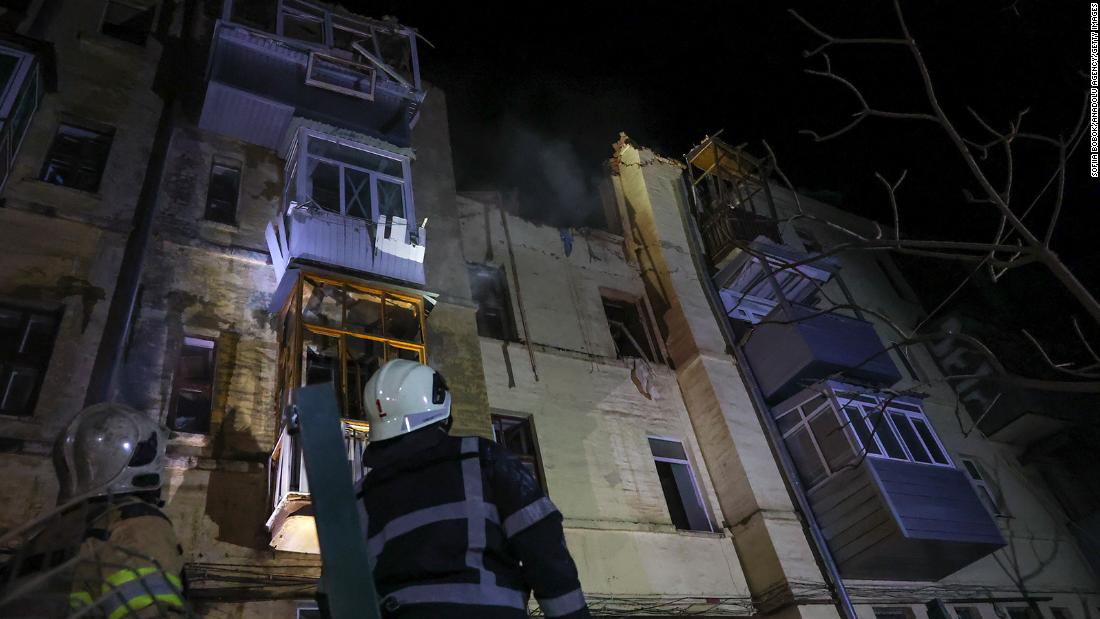
Talks on Zaporizhzhia nuclear plant are "not easy", Russia's deputy foreign minister says
From CNN's Josh Pennington
Russia's deputy foreign minister Sergei Ryabkov claims Ukraine is "dragging its feet" on negotiations to create a safety zone around the Zaporizhzhia nuclear power plant.
"The negotiation process is not easy. We forwarded our proposals to Rafael Grossi, the director general of the [International Atomic Energy Agency]. To the best of our knowledge, Kyiv has not yet provided a clear answer to the initiative of the IAEA head. By the looks of it, it is simply dragging its feet," Ryabkov said in an interview with Russian state news agency RIA Novosti released Monday.
Since last fall, Grossi has reiterated the urgency of creating a safety zone around the plant in southeastern Ukraine, which has been under the control of Russian forces since March last year.
Ukraine has repeatedly accused Russian forces of storing heavy weaponry inside the complex and using it as cover to launch attacks, knowing that Kyiv's forces can’t return fire without risking hitting one of the plant’s reactors.
According to RIA, Ryabkov accused Kyiv of giving "the impression that it is using this facility for nuclear blackmail" and claimed the IAEA has no right to interfere in its security.
Russia's deputy foreign minister says talks with Ukraine are "pointless" after US agreed to send tanks
From CNN's Josh Pennington and Jake Kwon
The decision by the United States and NATO allies to send tanks to Ukraine has made it "pointless" for Moscow to engage in any talks with Kyiv, Russia's deputy foreign minister Sergei Ryabkov told state news agency RIA Novosti in an interview released Monday.
"Under the current conditions, when Washington announced the decision to supply tanks, and its vassals, including Ottawa, are competing over who will supply armored vehicles, especially old ones, to Ukraine, and how many of them... it's pointless to talk," Ryabkov said, accusing Washington of using Ukraine as a "testing ground" for its weapons.
"We are willing to consider any serious initiatives to resolve the Ukrainian crisis, but so far no one has articulated them properly," he added.
Ukraine received a boost last week when Germany said it would send 14 to Kyiv, while also permitting other countries that possess the Leopards, including Norway, to supply them.
In addition to the Leopards, Ukraine is set to receive heavy armor from both the United States, which is sending 31
Prisoner swaps: Ryabkov also said Russia and the US will continue negotiations on the exchange of prisoners, but such an ultra-sensitive issue "loves silence," he said, adding there are few realistic options for an "all for all" prisoner exchange, RIA reported.
NATO secretary general urges South Korea to allow direct arms exports to Ukraine
From CNN's Brad Lendon in Seoul, South Korea
NATO Secretary General Jens Stoltenberg on Monday asked South Korea to reconsider its rule on not exporting weapons to countries in conflict so it could help arm Ukraine in repelling Russia’s invasion.
“I urge the Republic of Korea to continue and to step up the specific issue of military support,” he said in a question and answer session after a speech to the Chey Institute for Advanced Studies in Seoul.
“Several NATO allies who had as a policy never to export weapons to countries in conflict have changed that policy now,” Stoltenberg said, citing Germany, Norway and NATO applicant Sweden as those which have changed their arms export policies to help Ukraine.
“After the brutal invasion of Ukraine, these countries changed their policy because they realized that when you are facing a brutal invasion where a big power – Russia – invades another one in a blatant way as we have seen in Ukraine, if we believe in freedom, if we believe in democracy, if we don’t want autocracy and tyranny to win, then they need weapons.
“When the full-fledged invasion happened last year, many countries changed their policy because they realized that the only way to stand up for democracy, to help Ukraine prevail, and to create the conditions for a lasting peace was to deliver military support.”
Some context: A South Korean presidential decree that enforces the country’s Foreign Trade Act says its exports can only be used for “peaceful purposes” and “shall not affect international peace, safety maintenance, and national security.”
South Korea is also a signatory to the United Nations’ Arms Trade Treaty, ratified in 2014 with the intention of keeping close control on who gets weapons and under what conditions they can be used.
Read more here.
Boris Johnson says Putin "threatened" him with a missile strike
From CNN's Alex Stambaugh
Former British prime minister Boris Johnson said Russian President Vladimir Putin threatened him with a missile strike in a phone call last year prior to Moscow's invasion of Ukraine.
"He threatened me at one point and said, 'You know, Boris, I don't want to hurt you, but with a missile it would only take a minute. Or something like that. You know...jolly," Johnson said in an interview with the BBC.
"I think that from the very relaxed tone that he was taking, the sort of air of detachment he seemed to have, he was just playing along with my attempts to get him to negotiate."
Johnson told the BBC he warned Putin during the phone call in February 2022 that invading Ukraine would lead to Western sanctions and more NATO troops on Russia's borders.
"[Putin] said, 'Boris, you say that Ukraine is not going to join NATO any time soon.' He said it in English: 'Any time soon. What is any time soon?' And I said, 'Well, it's not going to join NATO for the foreseeable future. You know that perfectly well," Johnson said of the call.
The exchange was released as a preview to a BBC documentary "Putin vs the West," scheduled for release Monday, which examines the Russian president's interactions with world leaders.
Neither Putin nor the Kremlin have publicly commented on the alleged threat.
Analysis: How Russia misread Germany's growing influence
Analysis from CNN's Nic Robertson
Two years ago, Moscow eyed a US-German standoff over the Nord Stream 2 gas pipeline as a litmus test of transatlantic power.
Russia had invested heavily in the 750-mile undersea pipeline linking it to Germany and wanted to increase global sales and ramp up economic leverage over Europe and its power-hungry heavy industries. Germany, a leading consumer, was on board from the get-go. Washington was not.
The United States didn’t want the new, high-capacity subsea supply to supplant old overland lines that transited Ukraine, providing vital revenue to the increasingly Westward-leaning leadership in Kyiv.
Russia reasoned that if Washington blocked Nord Stream 2, which it ultimately did, then it would show that European power no longer flowed through Berlin, but actually via the White House.
Fast-forward two years, and reading that transatlantic dynamic post-Angela Merkel, and particularly post-Russian President Vladimir Putin’s failing invasion of Ukraine, has become one of the most pressing political questions vexing the Kremlin.
Rare moment of steely leadership: German Chancellor Olaf Scholz’s refusal, in his words, “to be pushed” to go it alone in sending tanks to Ukraine — instead standing his ground and demanding US President Joe Biden join him in the venture, risking Putin’s wrath — has shown the transatlantic power dynamic has shifted.
Europe has been slow to respond to the deep fissures in US politics and the uncertainty another Trumpian-style presidency could wreak on its allies. Decades of a reasonably unshakable reliance, if not complete trust, in the US, has been replaced by stubborn European pragmatism — and Germany leads the way.
Read the full analysis here.
Ukraine is relying on Soviet-era tanks to hold the line until Western reinforcements arrive
From CNN's Fred Pleitgen, Tim Lister and Matthias Somm near Bakhmut, Ukraine
Dug in amid the rolling hills west of Bakhmut, the tanks of the Ukrainian army's 28th Mechanized Brigade are helping to hold the line against a growing Russian offensive.
They are battered and bruised by nearly a year of combat, but despite their age they are cherished by their crews.
The young tank commander, who goes by the call sign David, sees his unit's role as crucial in holding the line, and preventing a Russian advance towards the straggling industrial town of Konstantinyvka.
"We just work against them. If we don't, they will come closer and we will lose our houses and families. We stand here to let people peacefully live in their houses. If the Russians come to Konstantinyvka — what will happen? They will destroy it, not leaving a stone standing."
The 28th has had a long war already. It was in the south helping to liberate Kherson before being sent half-way across the country. But it prides itself on one of the lowest casualty rates among Ukrainian brigades.
As David talks, the air is split by the sound of outgoing fire from tanks and artillery. A howitzer is in action on the other side of the hill. Their targets are positions held by the Russian mercenary group Wagner south of Bakhmut, several miles away.
But the 28th uses its 125-millimeter shells sparingly. "We have problems with ammunition, we are running low on it," David says. "But that's the only problem we have. We get enough spare parts, our commanders work all the time to sustain and repair the tanks."
Sometimes, all it needs is the appearance of a tank in forward positions to scatter Wagner fighters, who are mostly lightly-armed infantry.
"When we come and fire, the enemy goes silent for two to three days," David says. "They won't fire at our guys in the trenches. If our tanks and artillery don't fire, our infantry will suffer."
Read more:
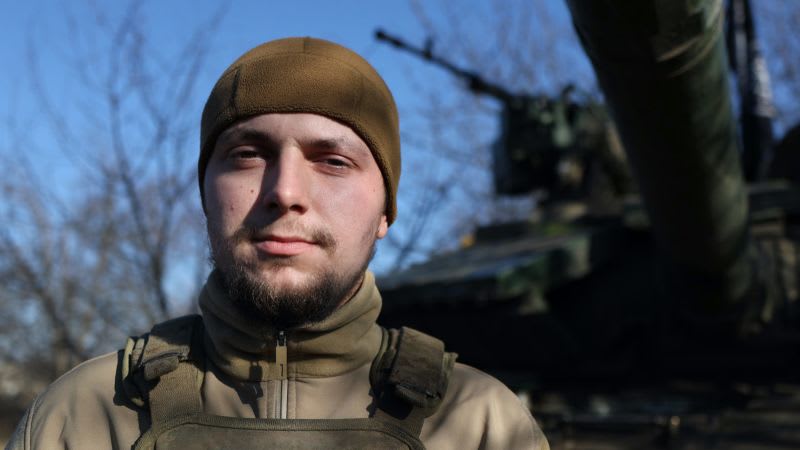
Russian missile strike on Kharkiv residential building kills 1, officials say
From CNN's Josh Pennington and Jake Kwon
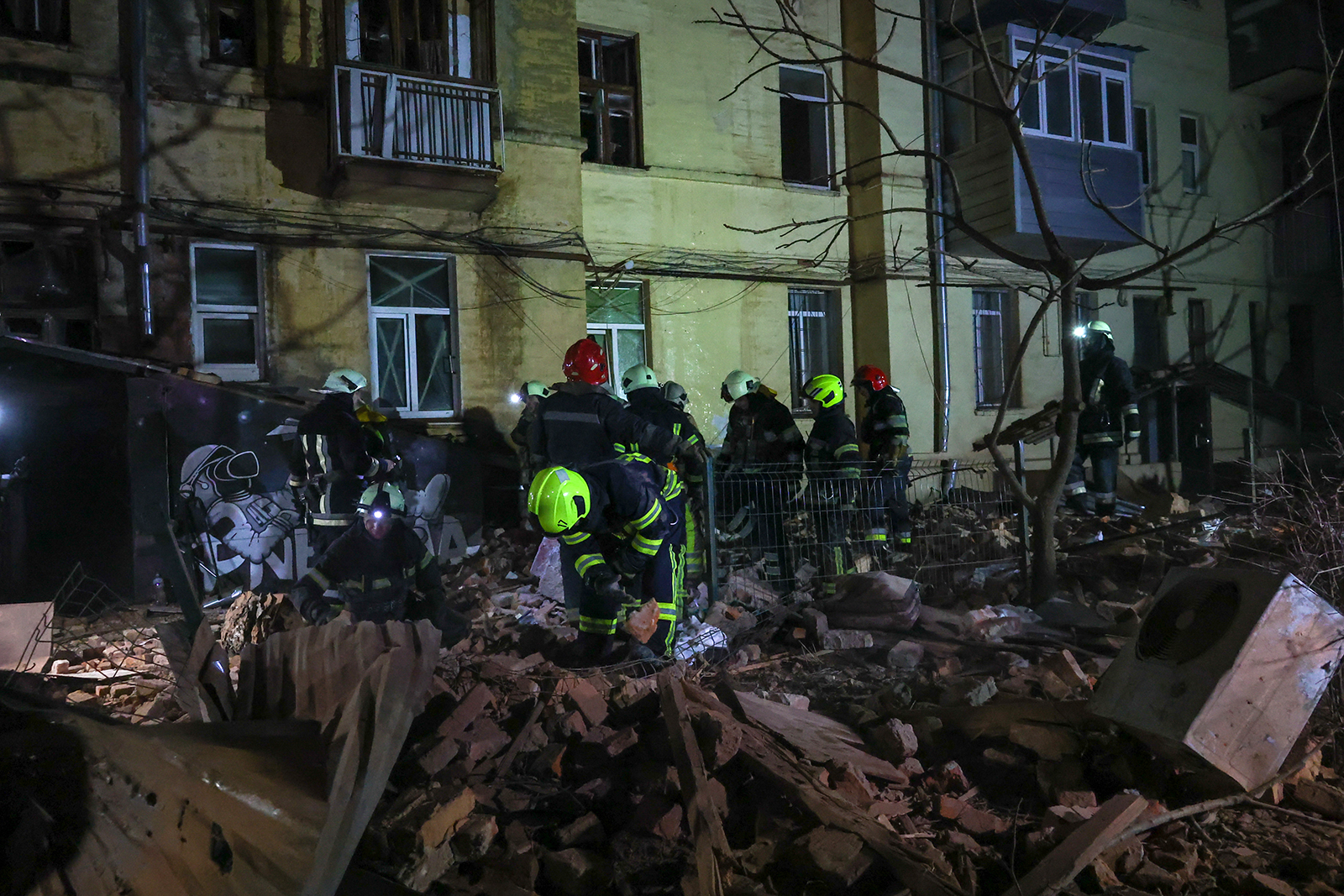
An elderly woman was killed and three other people were injured after a missile hit a residential building in the center of Kharkiv, Ukraine's second-largest city, on Sunday, Ukrainian officials said said on Telegram.
Oleh Syniehubov, head of Kharkiv's military administration, said on Telegram that the building in the city's Kyivskyi district was struck by a Soviet-era S-300 long-range missile.
"Three of the victims sustained light injuries. Unfortunately, an elderly woman was killed," Synehubov said.
The building was partially destroyed and residents have been evacuated, Synehubov said, adding emergency services are on site.
Erdogan says Turkey could respond differently to Finland's NATO bid than to Sweden's
From CNN's Alex Stambaugh, Jack Guy and Niamh Kennedy
Turkey may respond "differently" to Finland's NATO bid than to Sweden's, Turkish President Recep Tayyip Erdogan said, according to state news agency Anadolu, amid rising tensions between Stockholm and Ankara.
Both Sweden and Finland have applied to join the 30-member military alliance after Russia's invasion of Ukraine sparked renewed security concerns across the region. All NATO members, of which Turkey is one, must accept their bids for membership to be approved.
"We may respond differently to Finland if necessary. Sweden would be shocked when we respond differently to Finland," Erdogan said at a meeting with youth in the country's Bilecik province.
Turkey has previously urged Sweden to take a clearer stance against what it sees as terrorists, mainly Kurdish militants and a group it blames for a 2016 coup attempt.
Erdogan said Ankara has given a list to Sweden of 120 people to be extradited to Turkey, according to Anadolu.
"You need to extradite these terrorists so that you can enter NATO," Erdogan said Sunday.
Last week, Ankara called for a February meeting between Turkey, Sweden and Finland to be postponed, according to Turkish state broadcaster TRT Haber, which cited unnamed diplomatic sources.
More context: Turkey-Sweden relations suffered a further blow this month following a rally outside the Turkish Embassy in Stockholm at which an anti-immigration politician set a copy of the Quran alight. The incident sparked anger in Ankara, where protesters took to the streets and burned the Swedish flag outside the Swedish Embassy in response.
What we know about the number of tanks pledged to Ukraine
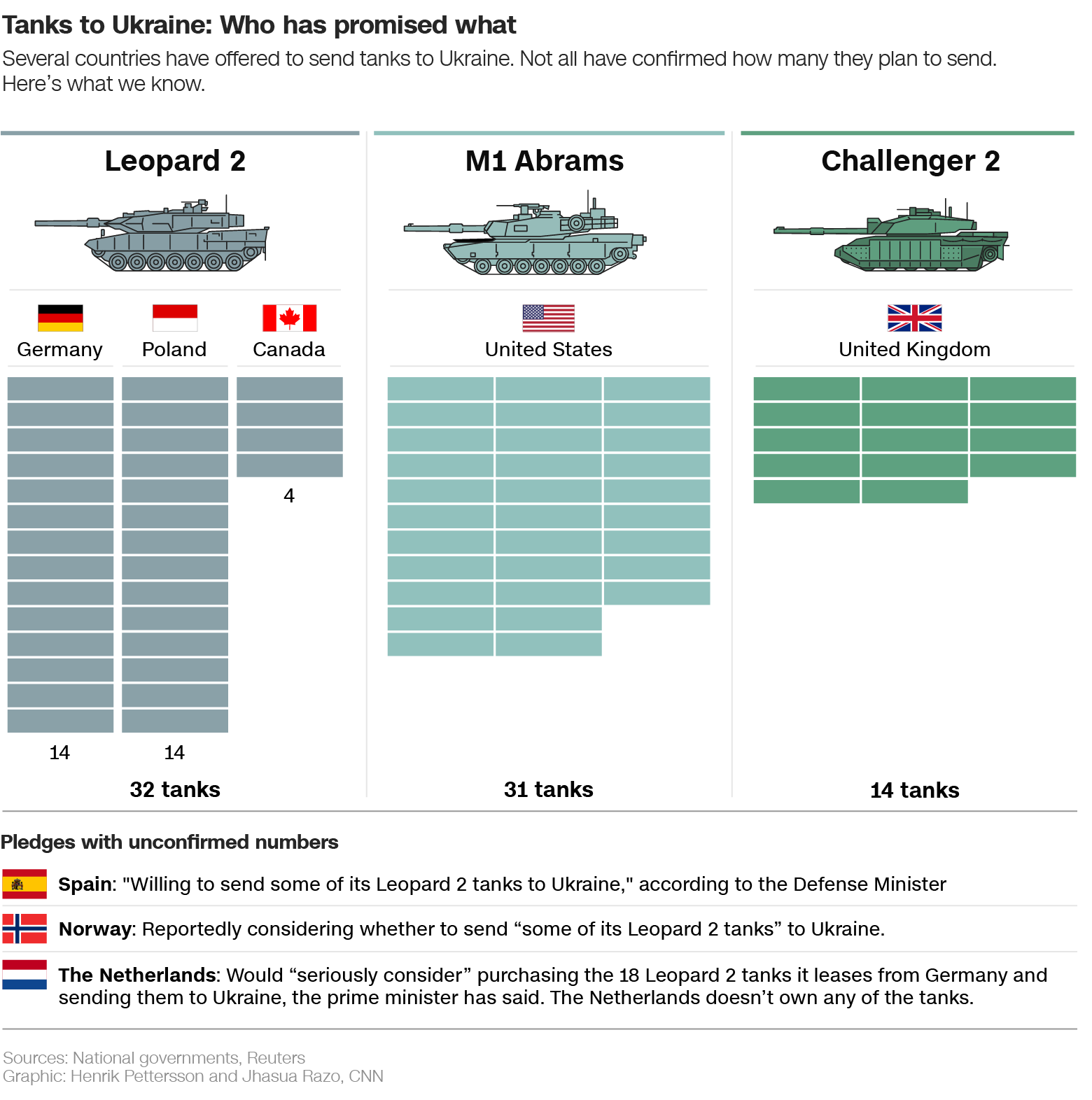
In addition to the 14 Leopard 2 tanks pledged, Poland said Friday that it will send 60 more modern battles tanks to Ukraine.

 Landwebs
Landwebs 







